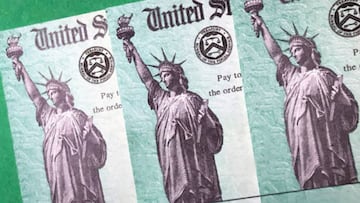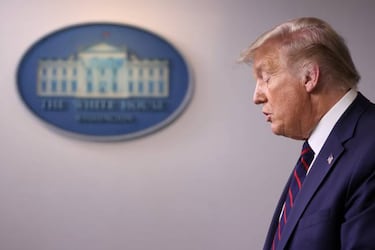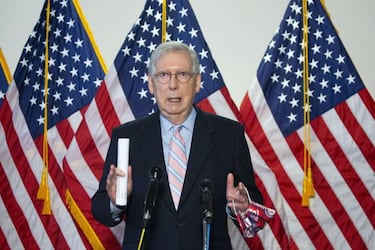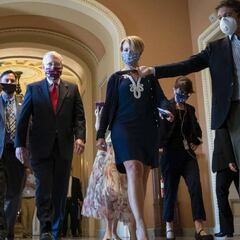Second stimulus check: when will the money arrive?
The Republican-led HEALS Act was seen as the starting point for the latest round of negotiations, with millions of Americans desperate to know when to expect their payment.

It was all the way back in May that the Democratic-controlled House passed a $3 trillion aid bill that included around $1 trillion to help state and local governments with their revenue shortfalls due to the huge slowdown in economic activity related to the pandemic. That was the HEROES Act but it was never going to see the light of day with Republicans controlling the Senate.
Then came the Republican-proposed HEALS Act, after some delay, and that was a new starting point with which to negotiate, while Americans around the United States waited on news of what financial support they could expect and, importantly, when they were likely to receive it.
Second stimulus check: 'within four weeks'
The good news is that both political sides say they support another round of direct payments to further help stimulate the economy and also to aid millions of people as they try to survive amid massive unemployment across the country. When that second stimulus check is agreed upon, as part of the overall relief package, it will almost certainly be issued out and delivered sooner than the first round of payments, at least for the majority of people.
With the rush to get the CARES Act signed off, the first round saw a number of logistical problems being faced which resulted in delays, as well as checks being sent to deceased people and to wrong addresses. But even in June, there was confidence in a much-improved process second time around.
- Second stimulus check: White House pushes 'skinny' Covid-19 stimulus bill
- $100 million coronavirus fraud losses after multiple scams
- Trump executive orders: is a second stimulus check coming?
- Second stimulus check: What is my AGI and where can I find it?
- Stimulus check: CARES vs HEALS vs HEROES Acts
- $1,000 stimulus check: how much for children and adults?
- Second stimulus check eligibility requirements: what to expect
Chad Hooper, the national president of the Professional Managers Association (PMA) which represents managers at the Internal Revenue Service, said that ”should there be subsequent rounds of stimulus, the agency could get out all of the payments more rapidly.
"Under the CARES Act program,” he continued, “the agency was able to issue direct deposits in fewer than four weeks – because of how the agency's ageing mainframe functions, it is our understanding that the most rapidly a check could be issued is roughly two to three weeks so I would expect to see payments issued within four weeks.
"Because the Treasury recently chose to issue debit cards to unbanked taxpayers or taxpayers for whom we do not have banking information, this is another population of taxpayers for whom we would have direct deposit information and will only help the agency to issue subsequent payments more rapidly."
Economic Income Payments: expected payment dates
The first round of stimulus checks involved the set-up of most of the payment structure, something that included the creation of the Get My Payment tool. This allowed individuals to sign up for a direct deposit - the quickest means of getting a check - and also to track its movements thereafter. This time around, it is already there, is familiar to most, and has a lot more information than before. A smoother process is guaranteed.
We are also now in a better position to predict payment dates, given that we have the experience of the CARES Act procedures. In that, we saw the bill pass the Senate on 25 March, the House a day later, and then President Trump signed it into law on 27 March. The first checks were issued on 15 April.

Although there is a risk that the HEALS Act will not be concluded by the proposed start of the summer recess (7 August) the plan is that everything is done so that there is no further delay. In this case, we could expect the president to put his name on it by 10 August - assuming he doesn’t try to veto the final bill - and that could then see checks issued from Monday 24 August.
Where is Mitch McConnell?
One potential spanner in the works for getting the deal completed by the end of the week is the lack of involvement of the Senate majority leader, Mitch McConnell. The man with the reputation of being a legislative mastermind and a tough, wilydeal-maker, said that he is deliberately hanging back as Congress's top Democrats and White House negotiators thrash it out.
If they reach a deal, he said, it would be "something I'm prepared to support even if I have some problems with certain parts of it."

The Democrat team, led by House of Representatives Speaker Nancy Pelosi and Senate Democratic Leader Chuck Schumer, have presented a unified front around their $3 trillion HEROES proposal.
Related stories
And on Tuesday, Schumer suggested McConnell had lost control of his caucus.
"He's not in the room negotiating because the Republicans can't even articulate a coherent position," he said.

